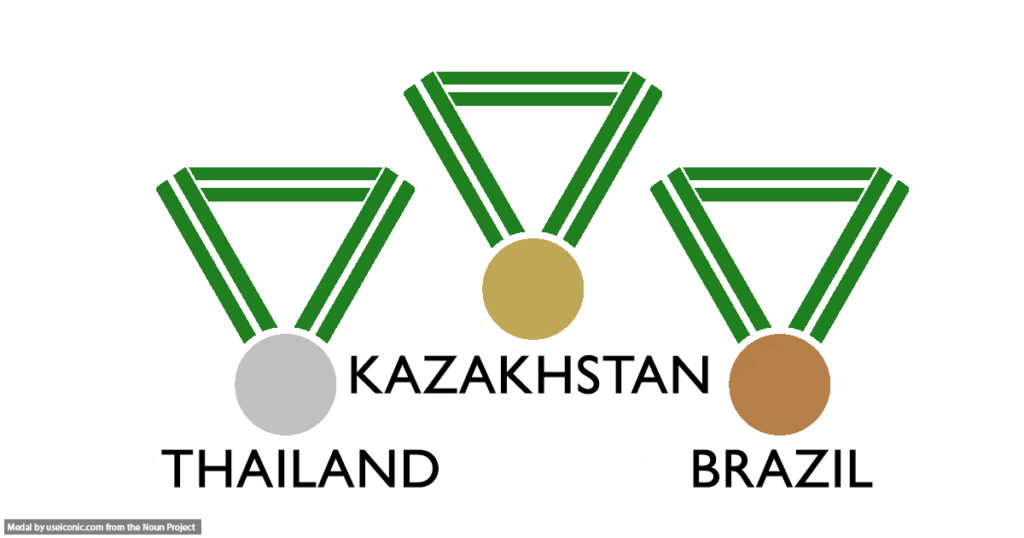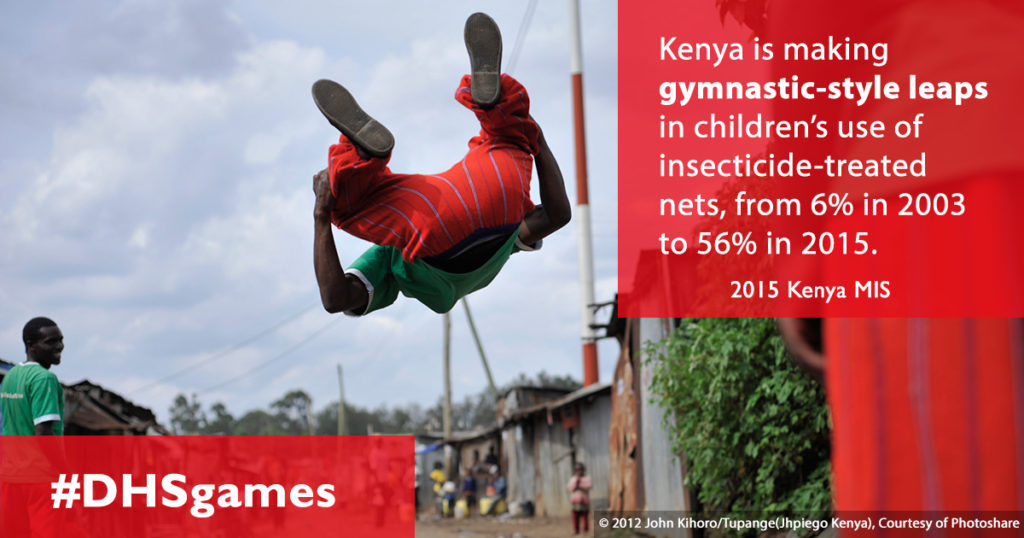#DHSgames Week One – Round Two

In our medal count to wrap up this first week of the #DHSgames, Kazakhstan moves into first place among DHS countries (and 12th overall), with seven total medals including gold in both swimming and weightlifting. Thailand is still going strong in 2nd place in the #DHSgames. Since our August 8th report, Thailand has earned an additional gold and silver, for a cumulative total of four medals, all in weightlifting. In 3rd place is Brazil, host of this year’s games and where the last DHS survey was conducted in 1996. Brazil won a gold and bronze in judo and a silver in 10m Air Pistol.
Clearly, weightlifting is a sport where DHS countries shine. Egypt has also done some heavy lifting. And we don’t just mean the heavy lifting Egypt has accomplished in maternal health, increasing skilled provider assisted births from 35% in 1988 to 92% in 2014.
Two Egyptian weightlifters won medals this week. On Thursday, trailblazer Sara Ahmed became the first women from an Arab country to win an Olympic medal in any sport when she lifted 255 kg in the women’s 69 kg weightlifting event, taking home the bronze.
Speaking of women’s empowerment, Demographic and Health Surveys include women’s status and empowerment indicators such as literacy, education, employment, and control over earnings. Recent surveys also contain information on women’s participation in household decisions, attitudes toward wife-beating, and hurdles faced by women in accessing health care for themselves. As advances are made in empowering women worldwide, DHS surveys continue to measure progress. Congratulations to Sara Ahmed. This event was generally a big one for DHS countries—Kazakhstan’s Zhazira Zhapparkul took the silver!
In other Egyptian weightlifting news, Mohammed Ihab took home a bronze in the Men’s 77 kg event after he lifted 361 kg. With all this talk about weightlifting, let’s take a moment to talk about weighting in DHS surveys. Like many countries, the population in Egypt is not evenly distributed among governorates. In order to provide representative data at the governorate level for the 2014 Egypt DHS, sampling weights were used. Reading DHS Tables provides more information about sampling and weighting in the 2014 Egypt DHS. Additionally, the video below provides a great introduction to the principles of DHS Sampling Weights.
You too can participate in the #DHSgames on Twitter and Facebook. Until our next update on Monday, August 15, be sure to watch DHS countries compete in badminton, fencing, volleyball, field hockey, and handball. Track and field competition starts today, and we’re excited to cheer on the athletes in this piece of the #DHSgames!


Did you check Indonesian female weight lifters?